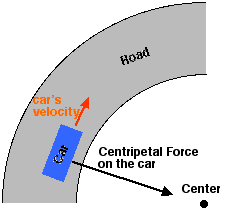In an unprecedented three year investigation,
the San Jose Mercury News has uncovered for the public what those of us in the system have always known: Our criminal justice system is rife with error.

San Jose
Over the next week or so, as I plow through their exhaustive coverage, I'll be posting at some length about this series. It deserves the attention.
Here's how it starts:
"The Santa Clara County criminal justice system failed Miguel Sermeno.
Sermeno was arrested on felony hit-and-run charges after walking the half-block from his house to the scene of an accident. An overzealous deputy district attorney ignored evidence that pointed to a more likely suspect, instead winning a wrongful conviction.
The system failed Bobby Herrera.
Herrera pleaded guilty to assault for a shooting he did not commit, buckling to pressure from an incompetent lawyer who bled his family for thousands of dollars but never investigated the case. Even after the key witness admitted she falsely accused him, indifferent state appellate court justices let his five-year prison sentence stand without explanation.
The system failed Frederick Brown. Brown was sentenced to 26 years to life for possessing stolen property, after he hauled away a truck that had been stripped of parts as it sat idly near his home for a year. The trial judge refused to instruct the jury on a key point of law: Brown was not guilty if he believed the truck was abandoned.
The three cases are among hundreds examined in an unprecedented three-year Mercury News investigation of the Santa Clara County criminal justice system that shows a disturbing truth:
A dramatic number of cases were infected with errors by prosecutors, defense attorneys and judges, and those errors were routinely tolerated. In dozens of cases, the errors robbed defendants of their right to a fair trial. And in a small number of the very worst cases, they led people to be wrongly convicted.
The study reveals ``a basic truth about how the criminal justice system operates,'' said Laurie Levenson, a former federal prosecutor who teaches criminal law and ethics at Loyola Law School in Los Angeles. Levenson was one of seven experts in criminal procedures and ethics who reviewed the Mercury News findings. ``A lot of sausage gets pushed through that machine. Errors that help the prosecution are common. The uneven nature of criminal justice is a serious concern.''
The Mercury News began its investigation in late 2002, as concerns emerged about the quality of justice in a series of high-profile cases. To test how the system worked more broadly, the newspaper reviewed the records of five years of criminal jury trial appeals decided by the California 6th District Court of Appeal -- 727 cases in all. In addition, the newspaper uncovered about 200 cases of questionable conduct that were not part of the study period, by reviewing files and interviewing lawyers.
The result is an unparalleled look at the extent, nature and impact of errors in a criminal justice system.
The review established that in 261 of the appellate cases reviewed -- more than one in every three of the total -- the criminal trial had been marred by questionable conduct that worked against the defendant. In only about one in 20 cases did the defendant win meaningful relief -- either a new trial or a significantly reduced sentence -- from higher courts.
The problems occurred at every phase of a trial, and in every part of the system."






 Moussaoui in his Fed-wear
Moussaoui in his Fed-wear

.jpg)



